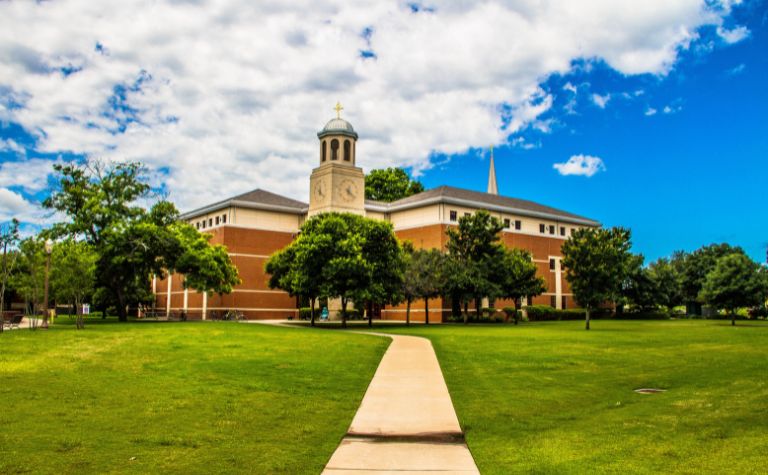The role of a pastor extends beyond merely delivering Sunday sermons; it encompasses spiritual leadership, counseling, teaching, and community outreach.
While personal calling and commitment are pivotal for anyone considering pastoral ministry, formal education provides the tools and knowledge essential for effective leadership.
Over the years, various educational pathways have emerged for those aspiring to be pastors. Some seek formal degrees, while others opt for specialized training programs.
This article explores the common degrees and training avenues that individuals pursue to prepare for pastoral roles, highlighting the significance of each in shaping a well-rounded pastoral leader.

Basics of Pastoral Education
Pastoral education primarily aims to equip individuals with the knowledge and skills necessary for effective spiritual leadership and guidance.
It covers a wide spectrum of topics, from understanding sacred texts and theological doctrines to practical aspects of ministry such as counseling, conflict resolution, and community engagement.
While the specifics of the curriculum might vary across institutions, a foundational pastoral education typically emphasizes the interpretation of sacred writings, church history, and ethics.
Another key component of pastoral education is fostering a deep sense of personal and spiritual development.
This ensures that aspiring pastors are knowledgeable and mature in their spiritual journey, allowing them to better relate to and guide their congregations.
Additionally, communication skills, both in public speaking and interpersonal interactions, are honed, considering their critical role in pastoral duties.
In recent years, pastoral education has also integrated contemporary issues, such as technology’s role in ministry and the challenges and opportunities it presents.
As society changes, pastoral education continues to adapt, ensuring that new pastors are well-prepared for the dynamic environment in which they will serve.

What’s a Master of Divinity (M.Div.)?
The Master of Divinity, commonly abbreviated as M.Div., stands as one of the most comprehensive graduate programs for those aspiring to leadership roles within many Christian denominations.
Its primary purpose is to provide students with a deep and broad understanding of theology, scripture, and pastoral practices.
Spanning typically three to four years, the program aims to ensure that graduates are competent in areas such as biblical interpretation, ethics, pastoral care, and liturgy.
M.Div. programs usually incorporate a mixture of classroom learning and practical experience.
The latter often involves internships, fieldwork, or supervised ministry, offering students a tangible taste of pastoral roles.
This hands-on approach ensures that students not only grasp theoretical knowledge but also the day-to-day intricacies of serving a community.
Over the years, the M.Div. has solidified its reputation as the standard preparatory degree for those wishing to enter pastoral ministry, especially for those eyeing roles as senior pastors, chaplains, or church leaders.
While other pathways to the pulpit exist, the M.Div. remains a widely recognized and respected route in theological education.

Alternative Pathways to the Pulpit
While the Master of Divinity remains a recognized standard for those aiming for pastoral leadership, there are other routes that individuals can take to serve in ministry positions.
Some denominations and congregations prioritize a deep, personal calling or vocational experience over formal theological training.
In such contexts, an individual’s life experience, personal testimony, and demonstrated leadership can be deemed sufficient for pastoral roles.
In addition to the M.Div., institutions might offer degrees like the Master of Arts in Ministry or Master of Theological Studies.
These programs, although shorter and often more specialized, can also prepare individuals for specific ministry roles.
For instance, a focus on youth ministry, counseling, or mission work might be the prime concern for some aspiring leaders.
Furthermore, there are many who enter the ministry after pursuing careers in unrelated fields.
Their varied life and professional experiences can offer unique perspectives and skills that enrich their pastoral approach.
Lastly, continuing education, workshops, and certification programs offer supplementary training for those without formal theological education.
The Role of Internships and Practical Experience
Internships and hands-on experience play a crucial part in the formation of aspiring pastors.
Academic knowledge, while foundational, is complemented by real-world application where future leaders can practice and refine their skills.
Internships, often arranged through theological institutions, provide students with a setting to observe seasoned pastors at work and gain mentorship.
Practical experience exposes students to the day-to-day operations of a church or ministry.
From delivering sermons and conducting ceremonies to pastoral counseling and administrative tasks, they get a holistic view of pastoral responsibilities.
This hands-on approach also allows them to navigate challenges, understand community dynamics, and learn the nuances of spiritual leadership.
Moreover, internships often serve as a bridge to job placements post-graduation.
Congregations and ministries get to familiarize themselves with a potential future pastor, while the intern assesses if the setting aligns with their calling and vision.
In essence, while academic training equips students with theological knowledge and critical thinking skills, it is through internships and practical experiences that they truly come to grasp the intricacies of pastoral work and community engagement.
Continuing Education and Lifelong Learning
For pastors, the journey of education doesn’t conclude upon obtaining a degree.
The nature of pastoral work requires an ongoing commitment to learning, both for personal growth and to better serve their congregations.
As societal dynamics shift, contemporary issues arise, and theological discussions evolve, pastors must stay updated to address their congregations effectively.
Workshops, seminars, and courses are routinely offered by theological institutions, ensuring that pastoral leaders remain informed about recent developments in theology, counseling techniques, and community engagement.
Digital platforms also offer a wealth of resources, from webinars to online courses, allowing pastors to learn at their own pace and convenience.
Furthermore, reading remains a staple for many pastors.
New publications, whether they discuss theological perspectives, leadership methodologies, or societal commentaries, can offer fresh insights.
Engaging with these materials can deepen a pastor’s understanding and broaden their horizons.
In essence, the pastoral vocation is one of constant growth.
Embracing a mindset of lifelong learning ensures that pastors remain effective, compassionate, and well-equipped to navigate the ever-changing landscapes of their communities and the wider world.
Recent Posts
David Jeremiah, a renowned pastor, author, and speaker, has captivated the hearts of many with his compelling sermons. His messages resonate deeply with diverse audiences, leaving an enduring...
Tim Keller, a distinguished pastor, theologian, and author, has garnered a devoted following through the profound impact of his sermons. In this article, we will explore seven compelling reasons...
